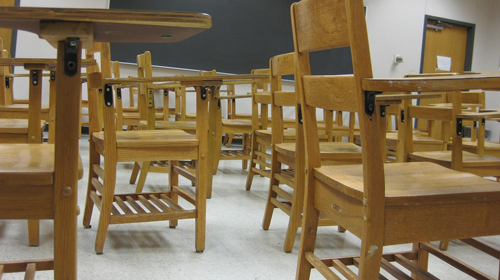Gay? Have a Disability? Can’t Provide Evidence of Salvation? Colorado Voucher Schools Discriminated on Religious Grounds. State Supreme Court Says Not on the Government’s Dime.


So-called “school choice” advocates claim that vouchers provide needed educational options for all students. But a pilot program offered by the Douglas County School District in Colorado shows that private school vouchers not only violate our core commitment to the separation of church and state, they also exclude many students, leaving them in defunded and weakened public schools.
Striking down the program yesterday, the Colorado Supreme Court recognized school voucher proponents are selling us a bill of goods. The court’s decision is a welcome development in the decades-long fight against private school vouchers. In a lawsuit brought by the ACLU, the ACLU of Colorado, and Americans United for Separation of Church and State, Colorado’s highest court ruled that the voucher plan violates the Colorado Constitution by misdirecting taxpayer funds to religious schools.
In Douglas County, for example, every participating high school was religious, with the exception of schools for special needs or gifted students. Most of the participating religious schools discriminated in admissions on the basis of religion. One school required students and parents to sign a “Family Commitment Statement” that included a promise to pray. Another school required parents of student applicants to attest to faith in Jesus Christ and sign a doctrinal statement submitting to the school’s religious beliefs. One participating school even demanded that parents “give evidence” of their theological “regeneration” — or salvation — before their children would be enrolled.
But the discrimination didn’t end there. Some schools refused to admit students with disabilities. And most of the schools also discriminated in hiring. One school required teachers to be “authentic and committed believers in Jesus Christ.” Another school required faculty to attend church as a condition of employment. And an employment contract for a third school provided that homosexuality is “a cause for termination,” while prospective teachers at a different school were required to sign a “Personal Sexual Purity Statement,” stating that marriage is an act between one man and one woman and that “God has expressly condemned . . . homosexual practice.”
Not surprisingly, the curricula at most participating religious schools were thoroughly infused with religion and religious doctrine. As one school explained: “Christian principles guide all of student life; classes, sporting and special events, and relationships.” Another school, which sought “to provide a Judaic education that allows students to act as fully functioning Orthodox Jew,” tailored its curriculum to reflect “traditional (halachic) interpretation of laws and customs.” Moreover, nearly every participating religious school compelled students to participate in worship services.
To be sure, parents have a right to direct the religious education of their children and to send their children to religious schools. But they are not entitled to do so at the taxpayers’ expense or at the expense of minority-faith students, non-believers, and others in Douglas County, for whom the “choice” touted by school officials was a sham. These students were unlikely to ever be accepted to the participating private schools. And if they were accepted, they would have been subjected to unyielding religious indoctrination and worship. The court’s decision recognized that giving religious schools taxpayer dollars for these purposes would infringe the religious-liberty principles enshrined in the state constitution.
On the surface, “school choice” might sound like a bargain: Parents can send their children to private school on the state’s dime. In reality, as we learned once again in Douglas County, it’s a raw deal for most students, taxpayers, and our cherished principles of religious liberty.

